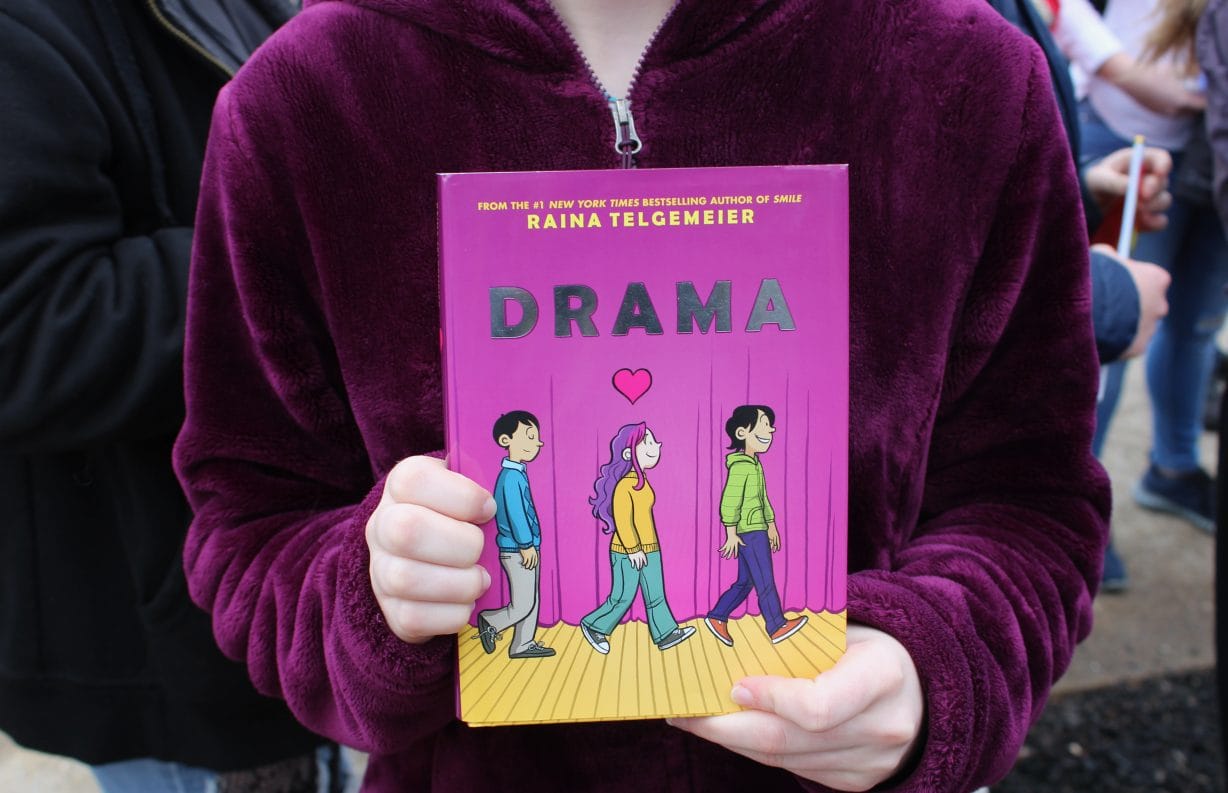
By Charlotte Matherly, contributor
After stripping 50 books from the shelves of county schools and preemptively banning seven more in January 2024, the Rockingham County School Board completed its review by voting on the fate of the final six titles Monday night.
Thirty of those books are now permanently banned – most against the wishes of the superintendent and the Content Review Committee that the board created to assess and make recommendations about the books.
As the process came to a close, something weighed heavily on the heart of board chair Sara Horst.
“In hindsight, I think that the process we used upfront in removing 57 books right out of the gate was a hasty decision,” Horst said. “I don’t regret that we took steps to review the content of certain books – that’s a difficult and important responsibility for our board – but I think the fact that about half of them have since been returned after committee review demonstrates that we put the cart before the horse.”
The 2024 school board, led by then-chair Matt Cross, outlawed 57 titles at its first meeting. It spent three months crafting policies that ban sexually explicit content in supplementary materials, including books, and enacted those rules in April 2024.
Over the past 17 months, the board has directed 18 of the temporarily banned books to be returned to all school shelves, while three have been reinstated in high schools only.
The board created policies that included a carveout for literary classics and created a Content Review Committee, which the board assigned to read each book and determine whether any contained sexually explicit content. But neither of those provisions withstood the will of the school board after the fact.
Nineteen of the 30 books banned by the school board were initially recommended for reinstatement by Superintendent Larry Shifflett and the review committee’s members, who said there was no sexually explicit content. In each case, however, board member Hollie Cave proposed removing them instead. Her colleagues agreed in most cases, save for board member Jackie Lohr.
In the last batch, the Content Review Committee recommended saving four books as literary classics – titles that “possess transcendent literary value” because of their age or cultural, historical or religious significance, according to the policy.
The board still voted to remove three of them, citing the presence of sexually explicit content: “The Bluest Eye” by Toni Morrison, “Out of Darkness” by Ashley Perez and “Go Ask Alice” by Beatrice Sparks. Board members didn’t say whether they agreed with the committee that these books were literary classics, nor did they address the potential conflict in the policy.
Also removed was “Rage” by Jackie Morse Kessler, but the board voted to keep “Beloved” by Toni Morrison and “Slaughterhouse-Five” by Kurt Vonnegut.
Horst, while not regretting the school board’s move to grapple with controversial material, said she wished they wouldn’t have acted so hastily at the conservative-majority board’s first meeting in 2024.
“I think we should have taken more time at the beginning to listen to our librarians and teachers and try to work more collaboratively. Instead, the actions that we took gave the impression that we were a threat to education, and that is something that has been heartbreaking for me, and something that I don’t want to be remembered for, being a threat to education,” she said.
Horst said she’s trying to slow down and craft a more intentional approach to policy changes now, including with recent efforts to require chaperones corresponding with the biological sex of students present on overnight field trips.
Cross, meanwhile, said he is looking to flesh out what he sees as gaps in the policies the board drafted last year.
While the board has decided to reinstate a few books for certain grade levels only, he said he wants to flesh out a standard for “age-appropriateness.” For example, he said, some books might be fine for high schoolers but not middle schoolers.
There’s also the issue of sequels. Several of the books the board has banned over the past year still have their other installments on the shelves: What should happen to them? Cross said the sequels are “just as bad” as the ones they’ve removed from school libraries.
While there’s no trigger clause to handle the sequels of banned books, under current policy, any parent can still challenge any book.
Cross also hopes to create an anonymous means of doing so.
“There’s quite a few parents I’ve spoken with that are afraid to challenge a book because they’re afraid they’re going to be canceled by cancel culture,” Cross said. He said they feared their names would be made public through the public record of any challenges they file.
“I’d like to find a way for parents to be able to challenge a book without feeling like they’re going to be thrown out there and be shamed over challenging a book that they feel that might be inappropriate,” he said.
Thanks for reading The Citizen, which won the Virginia Press Association’s 2022 News Sweepstakes award as the top online news site in Virginia. We’re independent. We’re local. We pay our contributors, and the money you give goes directly to the reporting. No overhead. No printing costs. Just facts, stories and context. We value your support.













